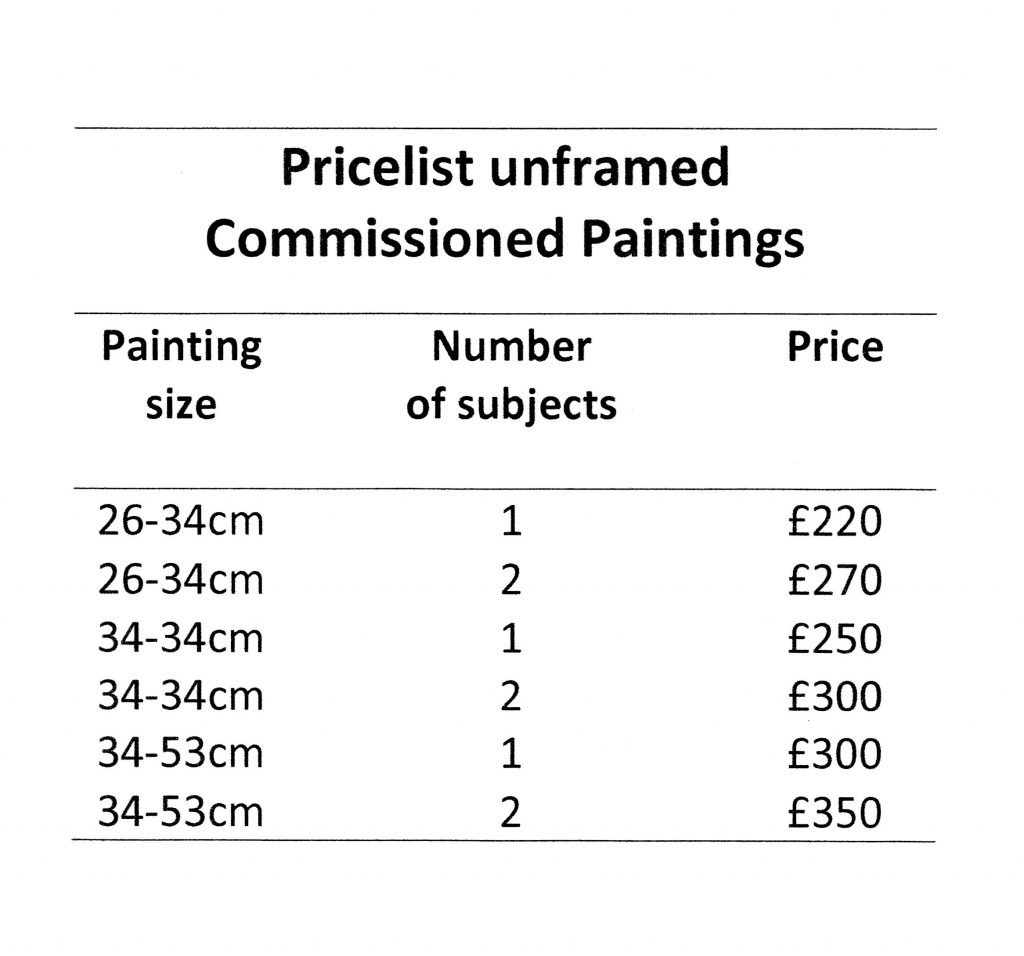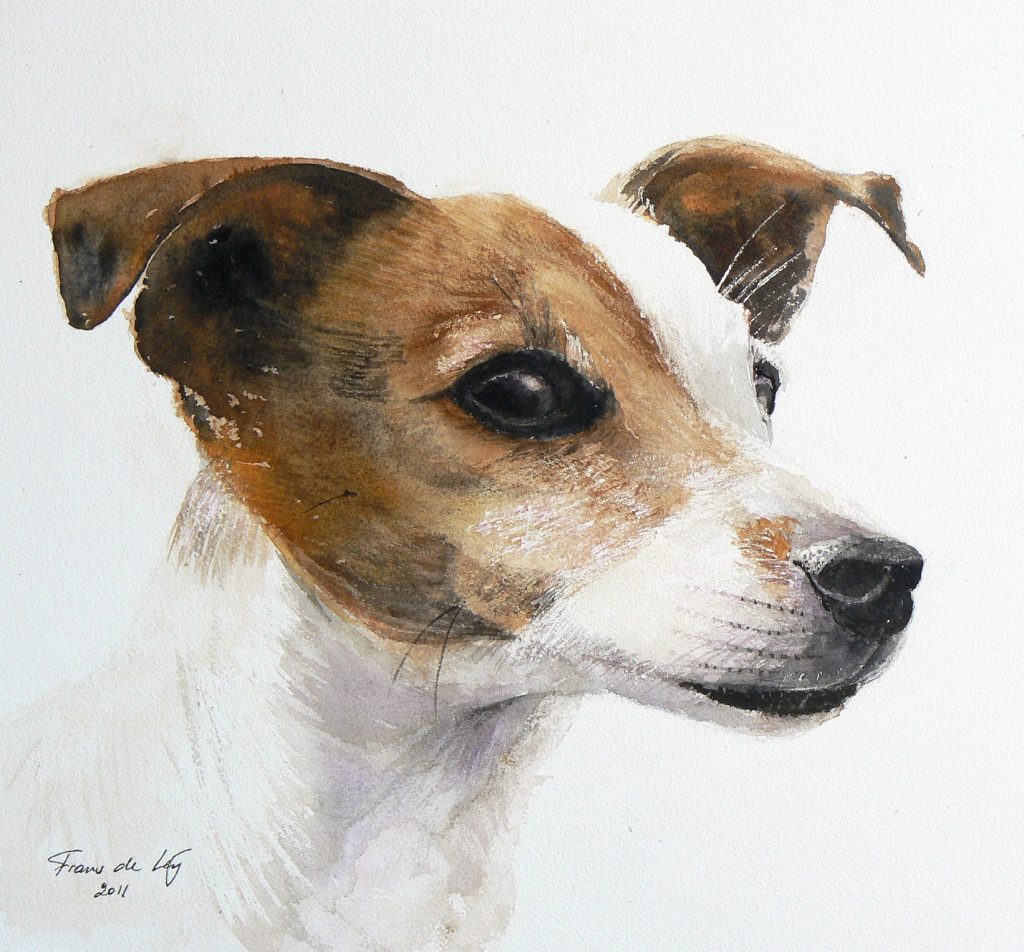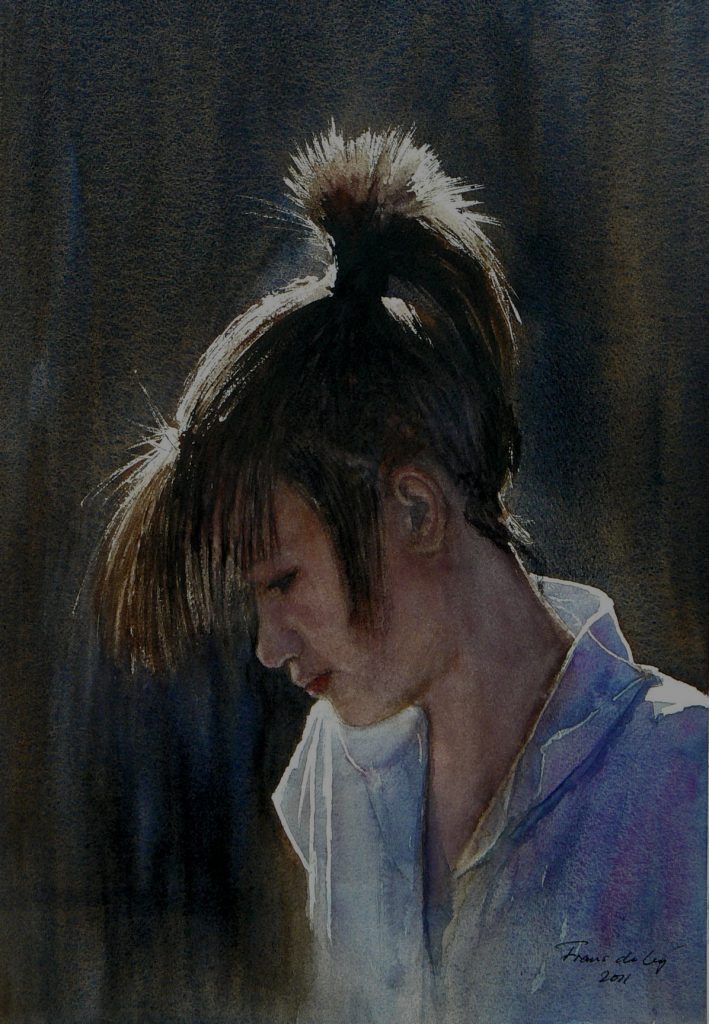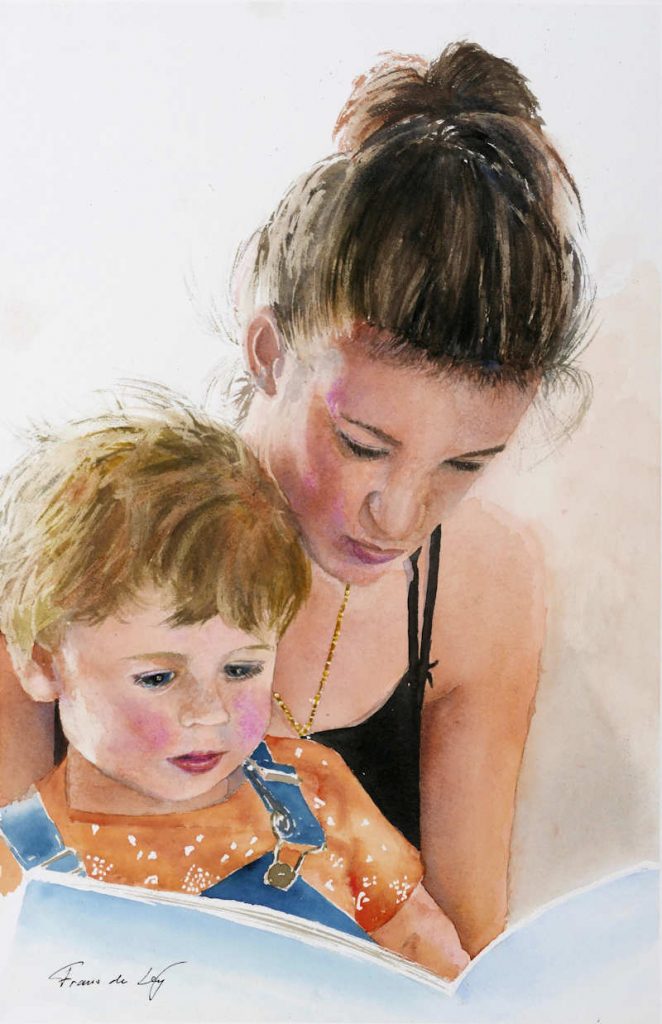Commission a Painting
An original painting of your pet is a fantastic gift for yourself, your family or a friend. Pets play an important part in our lives, but they are not with us forever, However a painting is forever.
You will find some examples of ‘traditional pet portraits in the Pet Portrait Gallery
For me it is important that I capture the character of your pet and I will do my best to ‘keep the image alive’. To be able to do that I will need a good photograph of your pet, preferably one that you love.
Whereas portrait paintings of dogs and cats are the most popular, I am happy if you commission me to paint a human portrait, a landscape or even a building you particularly like. You will find a few examples of human portraits I have painted in the Portrait Gallery.
Of course the image needs to be good and I am happy to discuss with you the merits of the image you have provided, before I embark on the painting. If I believe that the image is unsuitable as the starting point for a good painting, I will tell you.
Below are a few tips you could consider if you are thinking of taking portrait photographs of an animal or person.
As far as costs are considered, I would expect you to pay me £30 upfront to cover materials and set-up costs. This sum of money is non-refundable. However, I only expect you to pay the remaining balance if you are entirely happy with the end-result.
Most commissioned paintings come in three sizes (34-54cm, 34 by 34cm or 26 by 34cm) and prices are £300, £250 or £220 respectively). If you want a painting of more than one animal or person I will charge an extra £50 for each additional pet or person. If you want me to frame the painting appropriately, I will do so at cost.
Tips for taking good Portrait Photos
- Positioning yourself for taking photographs: It is best to take photographs at the level of your subject’s head (not from above or too far from below).
- Close up: Use zoom to get close to your subject to avoid facial distortions
- Positioning of your subject: Aim for your subject looking at you or at a slight angle away from you (between full frontal and profile).
- Eyes: Make sure that at least one eye of your subject is clearly visible
- Pose: Your subject should look interested and attentive. The best (human) portrait photographs are those where your subject is engrossed in an quiet activity that he/she loves doing such as reading, puzzling, art, knitting, etc).
- Lighting: Side lighting is normally best, but back lighting can be very interesting as long as important facial features are still clearly visible.
- Flash: Best not to use flash unless from the side



